6 Reasons Why Your Dandruff Treatment Isn’t Working?
Dandruff is one of those pesky things that creeps into your hair and decides to make a permanent home there. Especially in the winter season when the temperatures are low and you want to compensate for it with hot showers, it starts to grow and multiply manifold. But there are more reasons than what you already know. Figuring out the root cause of dandruff is more crucial to finding the best treatment to get rid of it. Those white flakes could be a result of any underlying condition like seborrheic dermatitis, which is an overgrowth of yeast that causes increased skin cell production, or it could be something as severe as eczema.
If you’ve been using anti-dandruff shampoos that don’t seem to show you good results, there could be other reasons why your dandruff is refusing to go away. Here are a few reasons why your dandruff treatment isn’t working and what you can do to get rid of them for good.
1. Chance Are…. It’s Not Dandruff

Not all scalp snow is dandruff. While the notorious white blizzard might be its signature move, dry scalp and contact dermatitis can leave behind similar flurries of confusion. So, how do you tell these flaky irritants apart?
Dandruff thrives in an oil-rich environment, fuelled by a microbe called Malassezia globosa. This sebum-gobbling glutton feasts on excess oil, leaving behind byproducts that accelerate dead skin cell shedding. Boom, dandruff flakes! So, if you're reaching for an anti-dandruff shampoo to combat a dry scalp, you might be adding fuel to the fire – that harsh treatment can irritate and worsen the dryness, leading to more flakes, not less.
Dry scalp, on the other hand, craves moisture. Lack of water or harsh products deplete the scalp's natural oils, leaving it parched and flaky. The flakes tend to be finer and stickier than dandruff, which is often accompanied by itching and tightness.One reason could be contact dermatitis. This sneaky intruder can flare up from an allergic reaction to hair products. The result? Itchy redness and, yep, you guessed it, flakes.
The key is to identify the culprit. Look for clues like the size and stickiness of the flakes, any itching or redness, and your hair care routine. If you're unsure, a dermatologist can be your friend of last resort, offering the right diagnosis and treatment plan.
Remember, not all flakes are the same. So, it's best to ditch the one-size-fits-all approach and treat your scalp. For this you need to put your detective hats on and add in some targeted care, you'll be saying goodbye to the white confetti on your scalp in no time!
2. Your OIL treatment Is Too OILY

Dandruff is a stubborn thing to deal with, and finding the right cure is like cracking a hair code (pun intended!). When dealing with dandruff we often take the natural remedies course, and oils like coconut oil and olive oil are the favourites. But while they might offer temporary flake-flushing satisfaction (as satisfying as popping a pimple), the long term results may not be as easy.
Here's the science behind this. Dandruff thrives in an oily environment, which is fueled by overproduction of sebum on the scalp. Adding more oil or too much oil to this already greasy party can be like pouring fuel on a bonfire – it might worsen the irritation and even clog the pores on the scalp, creating the perfect breeding ground for the ‘yeast’ that loves to play havoc on the skin. So, while the immediate flake-free feeling might be tempting, it's crucial to understand that oil might not be the long-term solution you're looking for.
But there are plenty of ways to manage it. Consider these alternatives:
Responsible Hydration: Even oily scalps need moisture. Look for lightweight conditioners and hair masks that nourish without weighing down your hair. Think of it as a delicate balancing act!
Scalp Hygiene: Regular cleansing is your dandruff-fighting friend. Washing your hair every other day (or more often if needed) with lukewarm water and a gentle shampoo keeps things fresh and flake-free.
Lifestyle Tweaks: Stress, diet, and even the weather can influence dandruff. Managing stress, eating a balanced diet, and reducing harsh styling practices can all contribute to a happier, healthier scalp.
3. Your Shampoo Frequency Isn’t Right

Dandruff can be a real head-scratcher (literally!), and sometimes the myths surrounding it just muddle things further. One prevalent misconception is that washing your hair frequently makes your scalp dry and hence makes it difficult to cut the dandruff. Wrong. Yes, dandruff equals a parched scalp, but skipping your shampoo sessions might just be making matters worse for you.
Staying away from shampoo doesn’t "moisturize" your scalp but allows the sebum and yeast to nurture on, potentially worsening the irritation and making those flakes multiply exorbitantly.
So the tip here is to shampoo whenever you feel your scalp is starting to get greasy, or feels dirty. Your hair might look dry though but your scalp is gushing under oil, so you need to shampoo it regularly, followed by a lightweight conditioner. The ideal frequency is once in three days for all hair lengths, but you can recalibrate this, based on the condition of your scalp.
4. You’re Allergic to Your Product

Sometimes, not getting rid of your dandruff isn’t because of your scalp’s overzealous sebum production, but is because of the very products we rely on to tame it. Enter the intriguing case of contact dermatitis, the impostor posing as dandruff. Think of it like this. You switch up your hair care routine, eager to embrace clean and shiny hair. But instead of a crowning glory, you're greeted by a flurry of flakes and an unwelcome itch.
This could be contact dermatitis, a skin irritation triggered by ingredients in your new shampoo, conditioner, or even that trendy hairspray that you saw on Instagram. On the other hand you need to embrace a gentle cleanser and ditch the harsh chemicals. Opt for shampoos formulated with scalp-soothing ingredients like pyrithione zinc or salicylic acid. These guys target the dandruff-causing yeast without stripping your scalp bare.
5. You’re Under A Lot Of Stress

Dandruff is annoying, but sometimes the biggest battle isn't fought with shampoos or scrubs, but within ourselves. Enter the culprit: STRESS. Yes, those worries and anxieties can actually worsen your flake-filled scalp! When stress takes hold, it throws our whole system into disarray. Then your hormones go haywire, and even your scalp feels the heat. This can trigger an overproduction of sebum, creating the perfect breeding ground for the yeast, which loves nothing more than a greasy feast.
6. Your Diet Isn’t Healthy

Sometimes, the problem may not even be as simple as a harsh shampoo or Hair Care Product that wrecks your scalp with chemicals. You may have to turn away from your bathroom cabinet and turn to your dinner plate to identify it. Your scalp is a delicate ecosystem. Without the right nutrients, it can become stressed and unbalanced, creating the perfect storm for dandruff-causing yeast to thrive. This is where our vitamin warriors come in.
Low levels of vitamin B3, vitamin B2, and vitamin B6 can all contribute to scalp inflammation and dandruff. These B vitamins act like the scalp's support systems, promoting healthy cell turnover and keeping oil production in check.
The other side of the picture is Zinc. It plays a crucial role in scalp health, regulating oil production and fighting off dandruff-causing fungi. Once you’ve established that you’re deficient in zinc, you could consult a doctor for zinc supplementation, or alternatively include almonds, oysters, chickpeas, lentils, pumpkin and sesame seeds in your daily diet.
THAT’S A WRAP
Your shampoo is just one side of the multi-faceted coin when it comes to dealing with flaky scalp. You need to tackle stress, diet, and the products you use on your hair before getting to any conclusion. But if things get itchy, painful or bloody, ditch the anticipation and head straight to the dermatologist – this case needs an expert!


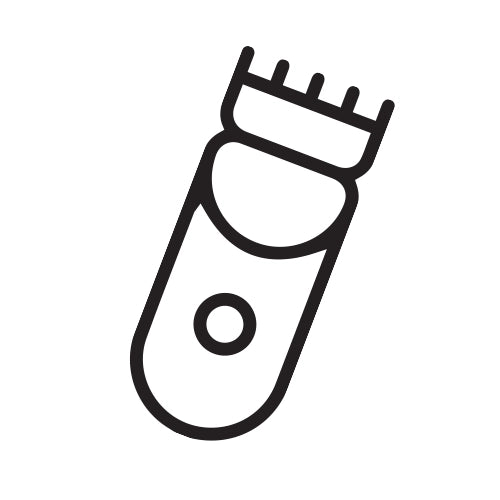

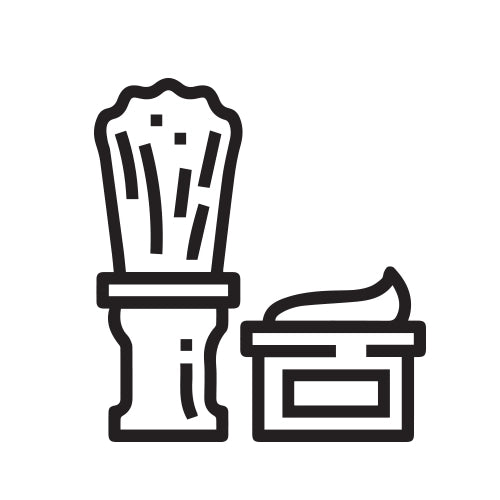

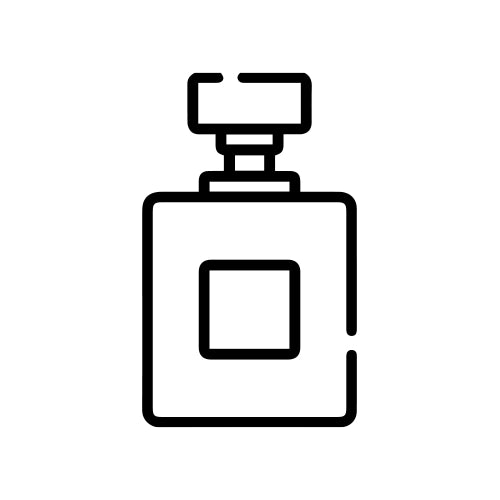
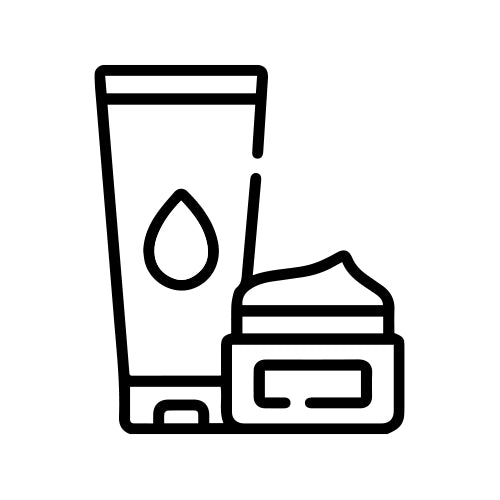
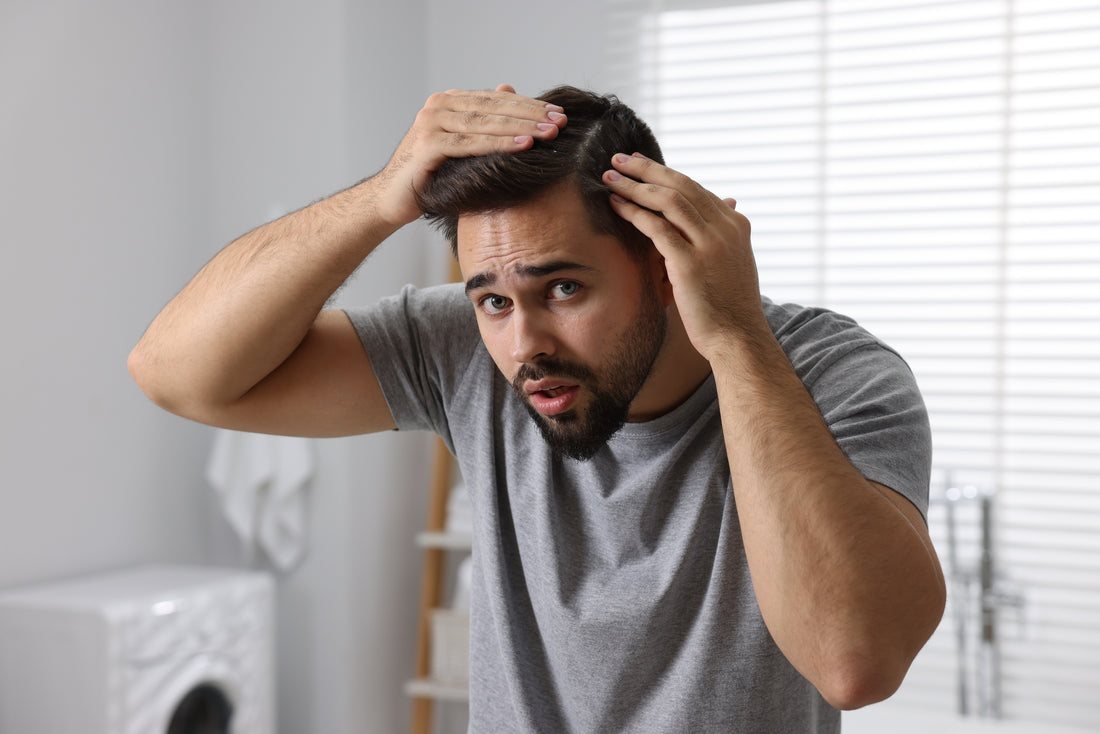
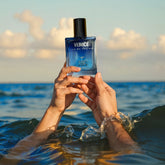

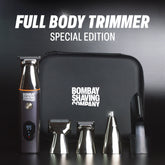

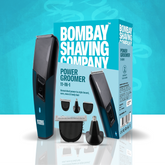

Leave a comment
Please note, comments need to be approved before they are published.